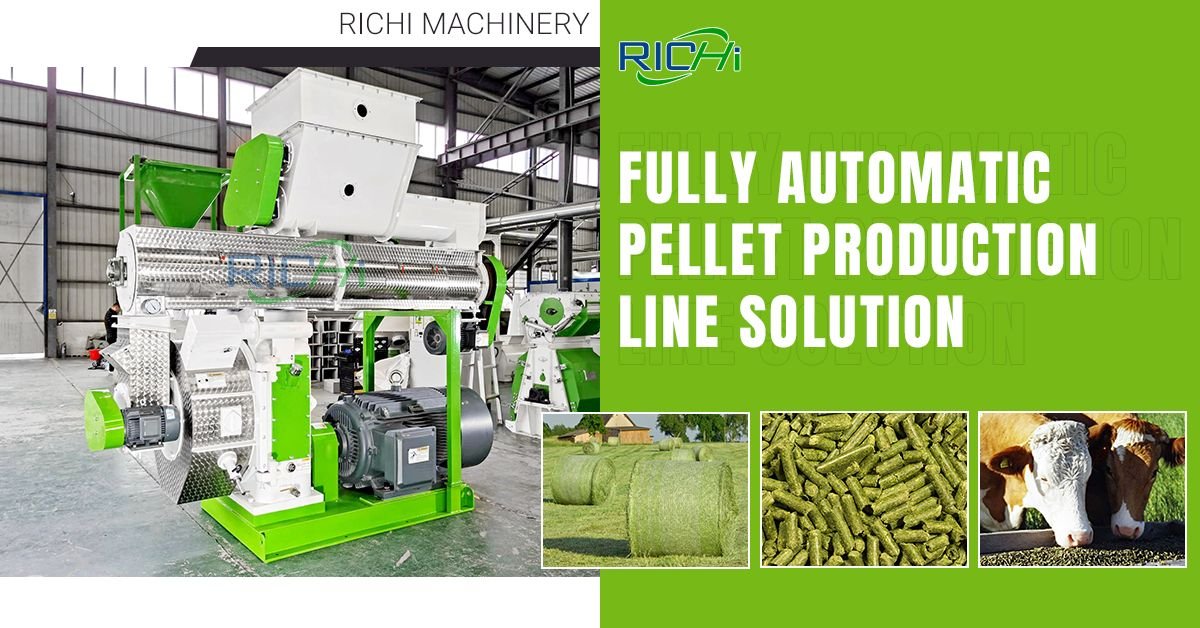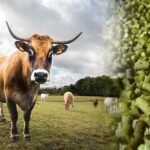Cattle feed pellet machines are sophisticated pieces of equipment that play a crucial role in modern livestock farming. These machines transform raw feed materials into compact, easily digestible pellets, improving feed efficiency and animal health. A common question among farmers and feed manufacturers is whether the installation and maintenance of these machines require professional expertise. This article explores the complexities involved in setting up and maintaining cattle feed pellet machines and the level of expertise required.
Installation of Cattle Feed Pellet Machines
The installation of cattle feed pellet machines often requires professional expertise for several reasons:
Complexity of Equipment
Cattle feed pellet machines are complex systems comprising various components such as the feeder, conditioner, pellet mill, cooler, and control system. Proper installation ensures that all these components work together seamlessly.
Electrical and Mechanical Considerations
These machines require specific electrical and mechanical setups. Professional installers understand the power requirements, wiring needs, and mechanical alignments necessary for optimal performance.
Safety Compliance
Professional installation ensures that the machine meets all safety standards and regulations, which is crucial for worker safety and legal compliance.
Customization and Integration
Many cattle feed pellet machines need to be integrated into existing production lines or customized for specific feed formulations. This often requires expertise in system design and integration.
Calibration and Testing
After installation, the machine needs to be properly calibrated and tested. Professionals can ensure that the machine produces pellets of the correct size, density, and quality from the start.
While some smaller, less complex models might be suitable for DIY installation, most commercial-grade cattle feed pellet machines benefit significantly from professional installation.
Related post: https://www.richipelletmachine.com/ring-die-pellet-machine/
Maintenance of Cattle Feed Pellet Machines
The maintenance of cattle feed pellet machines also often requires professional expertise, though the level of expertise needed can vary depending on the task:
Routine Maintenance
Some routine maintenance tasks can be performed by trained farm staff:
- Daily cleaning of the machine
- Checking and replenishing lubricants
- Inspecting belts and other visible components for wear
- Monitoring pellet quality for any changes
Periodic Professional Maintenance
More complex maintenance tasks typically require professional expertise:
- Die and roller replacement and adjustment
- Bearing inspections and replacements
- Electrical system checks and repairs
- Calibration of control systems
- Troubleshooting performance issues
Preventive Maintenance
Implementing a preventive maintenance program often requires professional input to:
- Develop maintenance schedules
- Identify potential failure points
- Recommend upgrades or replacements to prevent breakdowns
Specialized Tools and Knowledge
Many maintenance tasks require specialized tools and in-depth knowledge of the machine’s mechanics and electronics. Professionals have access to these tools and the expertise to use them effectively.
Software Updates and Diagnostics
Modern cattle feed pellet machines often include sophisticated control systems. Updating software and performing diagnostics typically requires professional expertise.
Emergency Repairs
When unexpected breakdowns occur, professional technicians can quickly diagnose and repair issues, minimizing downtime.
Benefits of Professional Expertise
Relying on professional expertise for installation and maintenance offers several benefits:
Optimal Performance
Properly installed and maintained machines operate at peak efficiency, producing high-quality pellets consistently.
Longevity of Equipment
Professional care can significantly extend the lifespan of the machine, protecting your investment.
Cost-Effectiveness
While professional services come at a cost, they can save money in the long run by preventing costly breakdowns and inefficiencies.
Compliance and Safety
Professionals ensure that the machine operates in compliance with safety regulations, reducing the risk of accidents and legal issues.
Warranty Protection
Many manufacturers require professional installation and maintenance to keep warranties valid.
Developing In-House Expertise
While professional expertise is often necessary, farms and feed mills can benefit from developing some level of in-house expertise:
Training Programs
Many equipment manufacturers offer training programs for operators and maintenance staff.
Documentation
Maintaining detailed records of maintenance procedures and machine performance can help build institutional knowledge.
Collaboration with Professionals
Working closely with professional technicians during maintenance visits can be an opportunity for staff to learn.
Gradual Skill Development
Over time, in-house staff can take on more maintenance responsibilities, reserving professional services for more complex tasks.
Conclusion
The installation and maintenance of cattle feed pellet machines generally require professional expertise, especially for commercial-scale operations. The complexity of these machines, the need for precise calibration, and the importance of safety and compliance make professional involvement crucial.
However, the level of professional expertise needed can vary depending on the specific machine, the scale of operation, and the tasks involved. While initial installation and complex maintenance typically require professional technicians, farms and feed mills can develop in-house expertise for routine maintenance and basic troubleshooting.
Ultimately, a balanced approach that combines professional services with developed in-house skills often provides the best results. This ensures optimal machine performance, longevity, and safety while allowing for efficient day-to-day operations and quick responses to minor issues. As cattle feed pellet machines continue to evolve with more advanced features, the value of professional expertise in their installation and maintenance is likely to remain high.


